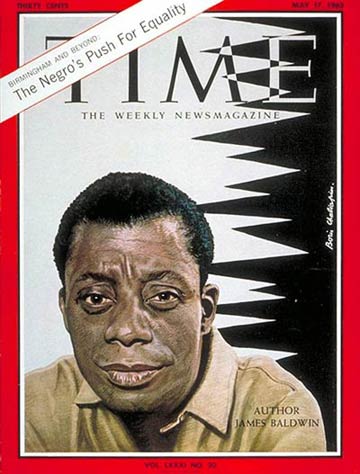
James Baldwin
(4 of 4)
"White Americans find it as difficult as white people elsewhere do to divest themselves of the notion that they are in possession of some intrinsic value that black people need, or want. And this assumption —which, for example, makes the solution to the Negro problem depend on the speed with which Negroes accept and adopt white standards—is revealed in all kinds of striking ways, from Bobby Kennedy's assurance that a Negro can become President in 40 years to the unfortunate tone of warm congratulation with which so many liberals address their Negro equals . . . The only way that the white man can be released from the Negro's tyrannical power over him is to consent, in effect, to become black himself, to become a part of that suffering and dancing country that he now watches wistfully from the heights of his lonely power and, armed with spiritual traveler's checks, visits surreptitiously after dark . . . The price of the liberation of the white people is the liberation of the blacks—the total liberation, in the cities, in the towns, before the law, and in the mind."
Fire & Pain. In the same terms, thanks to his newly assumed role of reluctant lecturer. Author Baldwin has now begun to exhort his own people to accept the past and learn to live with it. "I beg the black people of this country," said he last week, "to do something which I know to be very difficult: to be proud of the auction block, and all that rope, and all that fire, and all that pain."
Whenever he walks onstage to address a crowd of whites or blacks, James Baldwin takes the microphone and cries: "Can you hear me? . . . Can you all hear me?" If he can make himself heard—in depths far beyond the capacity of the human ear —everybody will know his name. And it won't be "Boy," and it won't be "Nigger."
